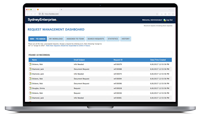AI and the Transformation of Information Literacy
Lauren Hays
Especially since, as per the Special Libraries Association, core competencies for information professionals include “teaching, training, and developing information literacy and associated skills for stakeholders.”
To start thinking about AI literacy within information literacy, it makes sense to define what AI literacy is.
What is AI Literacy?
In a Computers and Education Open article titled “What are artificial intelligence literacy and competency? A comprehensive framework to support them”, Chiu et al. (2024) defined AI literacy as:
“An individual’s ability to clearly explain how AI technologies work and impact society, as well as to use them in an ethical and responsible manner and to effectively communicate and collaborate with them in any setting. It focuses on knowing (i.e. knowledge and skills).”
Literacy does not necessarily equal competency, so Chiu et al. (2024) expanded upon the definition of AI literacy to develop the following definition of AI competency:
“An individual’s confidence and ability to clearly explain how AI technologies work and impact society, as well as to use them in an ethical and responsible manner and to effectively communicate and collaborate with them in any setting. They should have the confidence and ability to self-reflect on their AI understanding for further learning. [Competency] focuses on how well individuals use AI in beneficial ways.”
Breaking this down into specific skills could include the following:
- Critical evaluation of AI-generated content
- Understanding AI’s capabilities and limitations
- Recognizing potential biases in AI systems
- Ethical considerations when using AI tools
- Effective prompting and interaction with AI systems
- Verification and fact-checking strategies for AI outputs
- Integration of AI tools into research and information workflows
- Assessment of when AI use is and isn’t appropriate
Teaching AI Literacy: Considerations for Special Librarians
With these things in mind, when thinking about how to teach AI literacy and AI competency as part of information literacy instruction, I encourage you to consider the following components:
- Explain how AI uses information
- Large language models
- Neural networks
- Predictive text
- Discuss the impact of AI on society
- Copyright
- Intellectual property
- Share about how to ethically use AI
- Citing AI outputs
- Acknowledging the use of AI per journal requirements
- Discuss how to communicate and collaborate with AI
- Prompt engineering
- How to evaluate outputs
- Check sources
- Fact-check
As you start developing information literacy instruction that includes AI, ask yourself:
- How do we verify the accuracy of AI-generated information?
- What are best practices for documenting AI use in academic and professional work?
- How can AI augment rather than replace critical thinking skills?
- What role should AI play in information gathering and analysis?
Preparing for an AI-Integrated Information Environment
Ultimately, the goal remains empowering stakeholders to become sophisticated information consumers and creators—but the skillset needed has expanded significantly. From educating users about the potential of AI to developing an AI policy for libraries or larger organizations, information professionals must stay ahead of these changes in order to effectively prepare their user communities for an AI-integrated information environment.
Reference:
Chiu, T. K., Ahmad, Z., Ismailov, M., & Sanusi, I. T. (2024). What are artificial intelligence literacy and competency? A comprehensive framework to support them. Computers and Education Open, 6, 100171.
Lauren Hays
Dr. Lauren Hays is an Assistant Professor of Instructional Technology at the University of Central Missouri and a frequent presenter and interviewer on topics related to libraries and librarianship. Please read Lauren’s other posts relevant to special librarians. Learn about Lucidea’s powerful integrated library systems, SydneyDigital, and GeniePlus.
**Disclaimer: Any in-line promotional text does not imply Lucidea product endorsement by the author of this post.
Never miss another post. Subscribe today!
Similar Posts
Growing Your Leadership Skills: 7 Tips for Special Librarians
Great library leaders aren’t born—they’re made through learning self-reflection and practice. Here are seven strategies to help you grow and lead with impact.
Keeping Up with Copyright and Generative AI: What Special Librarians Need to Know
As generative AI becomes more prevalent copyright law is evolving to address its impact. A new report from the U.S. Copyright Office provides guidance on what is (and isn’t) copyrightable.
Understanding Shadow AI: Risks Costs and Governance
AI can enhance search discovery and efficiency but unsanctioned adoption—known as “shadow AI”—can lead to budget overruns and compliance risks. Here’s how to evaluate AI pricing models and build a governance strategy that balances innovation with cost control.
Interview with an Author: Fernandez on Streaming Video Collection Development
As demand for streaming video in libraries grows so do the challenges of managing access budgets and licensing. Co-author Michael Fernandez shares key insights from his book “Streaming Video Collection Development and Management”.







Leave a Comment
Comments are reviewed and must adhere to our comments policy.
0 Comments